Shimizu pursues initiatives in respecting human rights aimed at being “a company that values people,” as stated in the Code of Corporate Ethics and Conduct. We formulated the Shimizu Group Basic Human Rights Policy in December 2018 as a guide to fulfilling this responsibility, in line with the United Nations Guiding Principles on Business and Human Rights.
As a group company with operations around the globe, we aim to contribute to the United Nations Sustainable Development Goals (SDGs), as well as manage our business by recognizing and addressing relevant environmental, social and governance (ESG) issues. In order to fulfill our responsibility toward a sustainable society, we consider human rights issues from various perspectives.
Shimizu Group Human Rights Policy (PDF:187KB)
Response to the UK Modern Slavery Act
Human Rights Education Promotion Structure
Shimizu has established a Company-wide Human Rights Education Promotion Committee, which is chaired by our executive vice president. This committee will draft annual strategies based on the Shimizu Group Human Rights Basic Policy, as well as concrete action plans to guide implementation.
Decisions made by the Company-wide Human Rights Education Promotion Committee are implemented under the supervision of Division Human Rights Education Promotion Committees by employees specifically tasked with human rights promotion at each division. Group companies also work with Shimizu on rolling out various human rights initiatives.
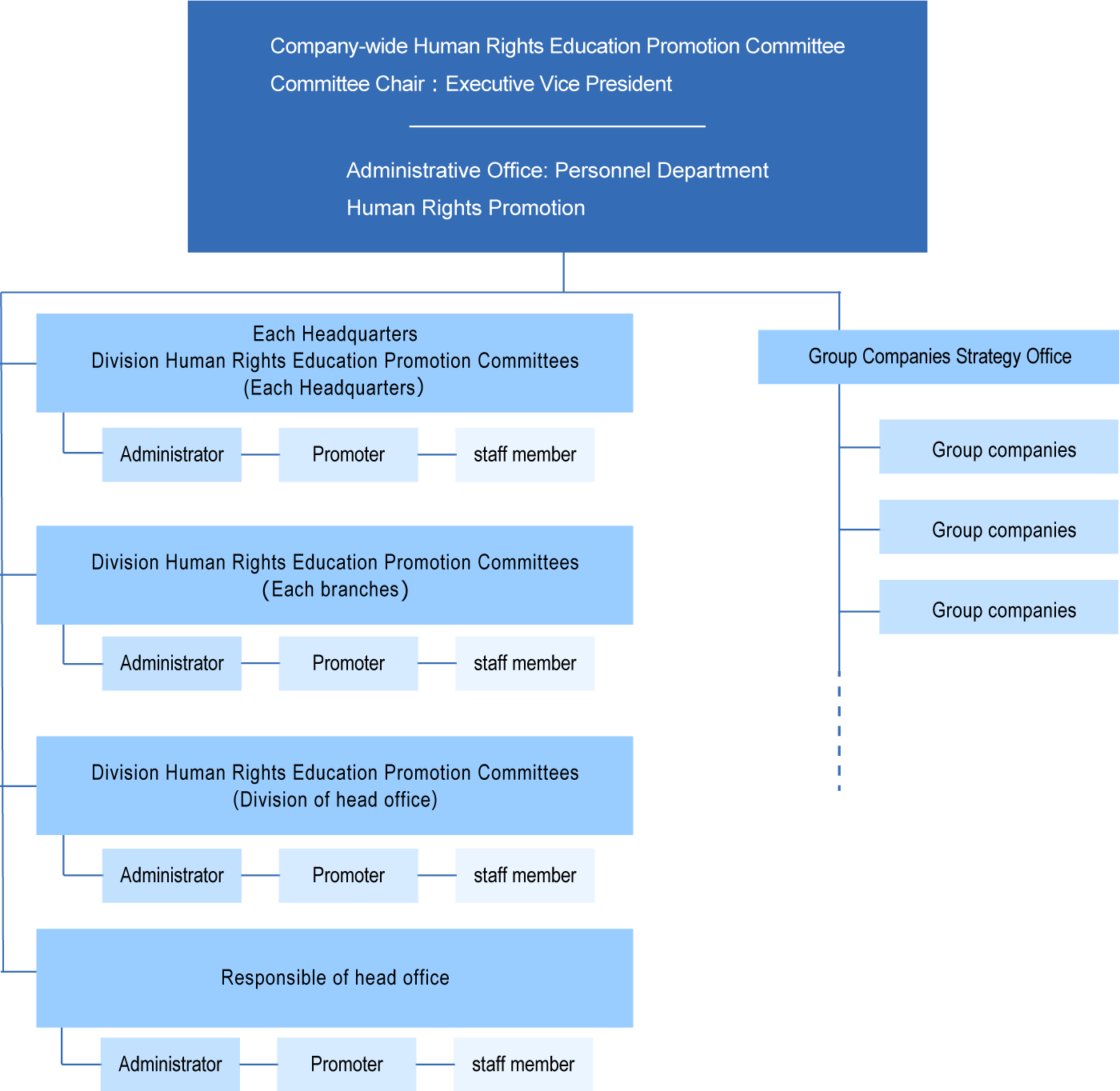
Education and Training
Training by rank
Based on the company-wide human rights education promotion plan, Shimizu provides human rights seminars and group trainings for all directors and employees (including those of subsidiaries). Various themes such as the dowa mondai (a Japanese discrimination issue regarding an ostracized community called the “burakumin”), racism, discrimination against people with disabilities, discrimination against LGBT people, harassment, and other topics are trained based on our Human Rights Policy.
| Recipients | Form | Training Frequency | FY 2021 Result | FY 2022 Result |
|---|---|---|---|---|
| Employees | Group training | Once every two years | 7,656 | 9,516 |
| Officers | Lecture | Annually | 50 | 52 |
| Division deputy general managers and general managers | 968 | 1,008 | ||
| Human rights education promotion leaders | Group training | 63 | 61 | |
| New employees | 354 | 361 |
※Employees participate once every two years on rotation. Every two years, the course is completed by all employees (excluding deputy general managers and general managers).
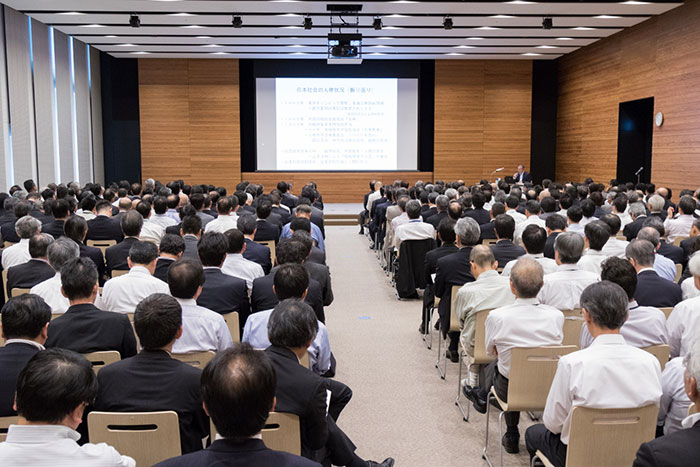
Human Rights Education Handbook
Shimizu Group executives and employees are distributed handbooks aimed at deepening their understanding of human rights. The handbook is a compilation of information on the Shimizu Group's basic human rights policy, human rights education promotion structure, various human rights issues, and fair recruitment selection.
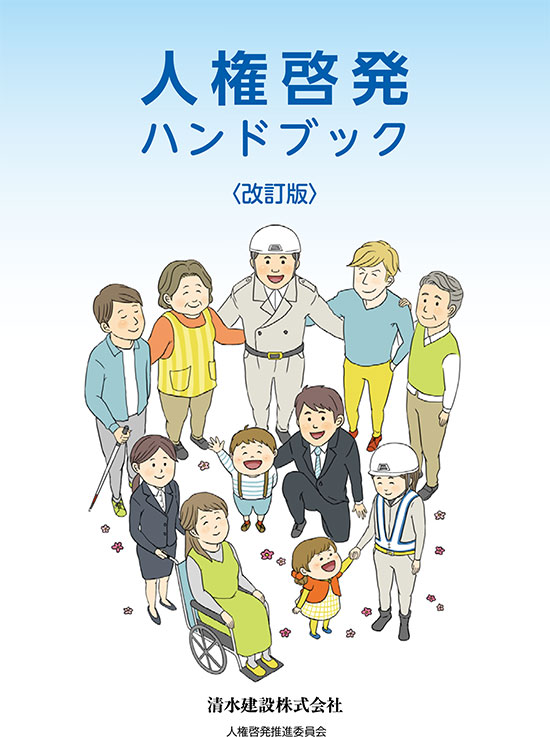
Human Rights Week Events
To heighten awareness of human rights, we hold a series of events during Human Rights Week in December of each year. These events include an awards ceremony to recognize the best slogans for raising awareness of human rights, employee training, and production and display of posters that raise awareness of human rights. Human rights awareness-raising slogans are solicited from the entire Group, including Group companies, and we received 3,072 entries from employees and their families in fiscal 2022.
Internal Whistleblowing System
Per the Basic Human Rights Policy, which stipulates that “Where we identify that we have caused or contributed to an adverse impact on human rights, we work to provide appropriate remedy,” shimizu has established a system for company officers and employees (including temporary employees) to contact an external expert via email for consultation on or reporting of workplace harassment and other issues. When a user seeks a specific resolution, the wishes of the user are confirmed based on the report from the expert, and the company takes the appropriate steps as required.
Whistleblowers will not be subjected to disadvantageous treatment for seeking consultation and reporting a problem. Whistleblowers information is kept highly confidential. When the company responds as necessary based on a consultation or report, we maintain strict confidentiality of the user, the information provided, and other pertinent information.
We have also set up an external whistleblowing hotline for subcontractors on our website via which employees of subcontractors can report or get help concerning unlawful acts by parties related to Shimizu or the Shimizu Group. Measures are in place to prevent whistleblowers suffering from disadvantage. Anonymous reports are also accepted.
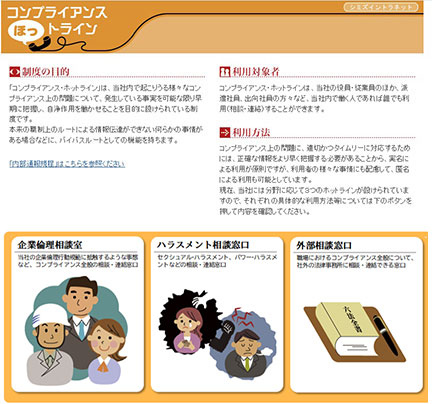
Due Diligence on Human Rights
From the sustainability standpoint of our business, we are promoting human rights due diligence, identifying, preventing, and mitigating adverse impacts on human rights. We also call for our supply chain to support the Shimizu Group Human Rights Policy, and we engage in a wide range of efforts.
Previous Initiatives
FY 2019
Shimizu conducted a fact-finding survey of human rights risks for foreign technical trainees and other foreign workers who work at construction sites in the construction business, which is Shimizu's main business. This survey was conducted in light of the many reports of human rights infringements relating to foreign technical trainees and students studying abroad. We worked together with a third-party institution to ensure objectivity and neutrality in conducting surveys at 10 subcontractors with which Shimizu does business.
The fact-finding survey consisted of interviewing business owners, verifying documentation, interviewing foreign workers*1, and verifying their living environment.
A survey showed that there were no major human rights risks, but it did reveal issues such as employment regulations not being available to foreign technical trainees in their native language.
FY 2020
In response to the results of the survey conducted in fiscal 2019, we raised awareness of matters required by law and operational guidelines for hiring technical trainees from abroad and matters requiring improvement by publishing them on a dedicated website for subcontractors and providing training.
A third-party institution was also retained to survey and analyze human rights risks for workers who work at construction sites in the main countries and regions where Shimizu operates overseas. The third-party institution evaluated human rights risks in each country. The evaluation identified five countries in which a high level of human rights risk exists and where Shimizu is expected to have ongoing business operations or will focus on in the future. The five countries identified were China, Thailand, India, Bangladesh, and Myanmar. The survey confirmed a high level of human rights risks, including as child labor, forced labor, and improper payment of wages.
FY 2021
We conducted a survey among our major subcontractors*2 1,297 companies in Japan on accepting technical trainees from abroad. The results of the survey revealed that 118 companies employ technical trainees from abroad in their companies, and we obtained responses from these 118 companies regarding the status of their acceptance of technical trainees. Although we were able to confirm that each company was properly accepting these trainees for the most part, some needed to make corrections or improvements to their contracts with respect to responsibility for supervision fees and return flight costs, penalties, and compensation for damages.
Results of survey on accepting technical trainees from abroad (Only in Japanese) (PDF:436KB)
- Interviews were conducted with 30 foreign workers from China, Vietnam, the Philippines, and Myanmar in their native languages.
- Major subcontractors: Members of our subcontractor organization (Kanekikai)
FY 2022
Based on the results of the survey on accepting technical interns from abroad, we worked to prevent and mitigate human rights risks by raising awareness of matters requiring correction or improvement and best practices through training for subcontractors.
Initiatives at overseas construction sites
We are also actively engaged in human rights due diligence activities at overseas construction sites.
We carry out human rights due diligence initiatives for employees of foreign nationality by putting up illustrated posters and holding local workshops that encourage respect for human rights, which includes rejecting child labor, forced labor, inappropriate wages, and other human rights violations.
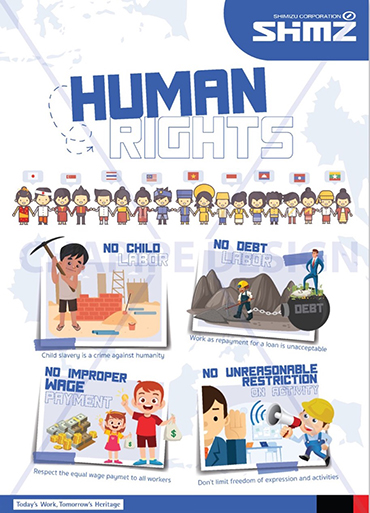
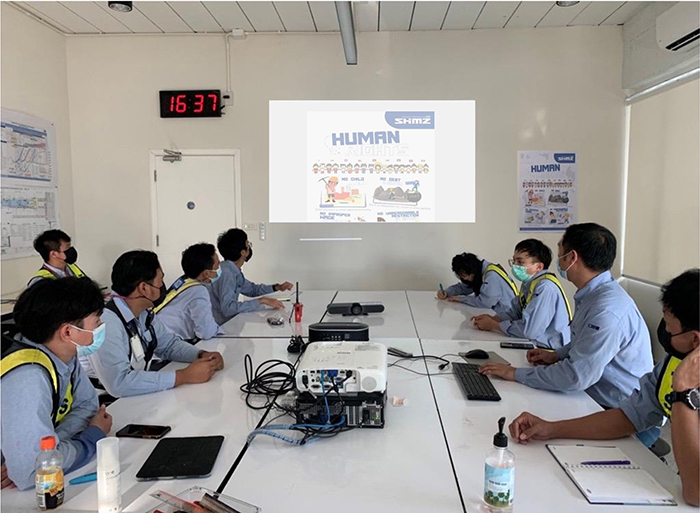
Cooperation with outside concerning human rights
Global Compact Network Japan (GCNJ) Activities
Shimizu participates in the Human Rights Education Working Group Subcommittee and Alongside other corporate participants, we share and obtain information and insight about the effective implementation of human rights initiatives.
Activities of the Industrial Federation for Human Rights, Tokyo
Shimizu is a member of the Industrial Federation for Human Rights, Tokyo, which consists of 123 companies as of April, 2022 most of which are headquartered in Tokyo. We work along with other member companies to contribute to solving various human rights issues through implementation of human rights trainings, raising social awareness of human rights issues, and publicly reporting on these activities.
Tokyo Human Rights Promotion Corporate Liaison Council
Activities of the construction and real estate Human Rights Due Diligence Study Group
We participate in the construction and real estate Human Rights Due Diligence Study Group, which was established by eight general contractors and developers in 2018. In addition to promoting collaborative initiatives with other companies, we share information on individual initiatives and positive examples to address human rights issues common to the industry, such as using sustainable concrete form material and technical trainees from abroad at construction sites.
Moreover, to deepen real estate developers understanding of human rights issues among foreign technical intern trainees, we actively interact by letting them attend to our interviews conducted with subcontractors.



